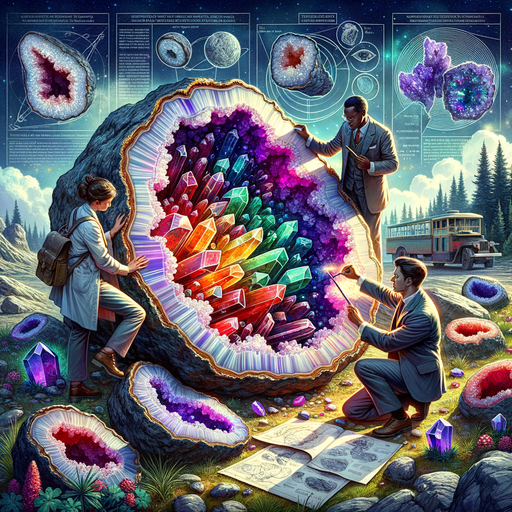Uncovering the Hidden Beauty of Geodes
Delving into the formation, structure, and fascinating crystal formations within geodes

Uncovering the Hidden Beauty of Geodes
Geodes are truly nature’s treasure trove. From the outside, they appear to be ordinary rocks. However, break them open, and you’ll uncover a stunning spectacle of crystal formations. In this article, we’ll delve into the fascinating world of geodes.
Formation of Geodes
Geodes are formed in volcanic or sedimentary rocks. When rock formations have cavities, over time, mineral-rich water seeps into these hollow spaces. The minerals start to crystallize as the water evaporates, leading to the formation of geodes.
Inside a Geode
Inside a geode, you’ll find a myriad of crystal formations. The type of crystals that form within a geode depends on the minerals in the surrounding rock and water. Commonly, you’ll find quartz, amethyst, jasper or calcite formations.
“Geodes are like the Tardis of the mineral world; they’re bigger on the inside.” - Dr. Helen Sharman, Geologist
Geode Discovery and Collection
Collecting geodes can be a thrilling experience. They are commonly found in deserts, volcanic ash beds, and areas with limestone. However, remember to always follow local laws and respect private property when collecting geodes.
| Location | Known for |
|---|---|
| Keokuk, Iowa, USA | Keokuk geodes with quartz and pyrite |
| Dugway, Utah, USA | Geodes with banded agate |
| Chihuahua, Mexico | Coconut geodes with amethyst and calcite |
Appreciating Geodes
Geodes are more than just beautiful objects. They offer a glimpse into the geological processes that shape our planet. Each geode is a unique record of the mineral conditions at the time of its formation.
For more information on geodes and other fascinating geological formations, check out the United States Geological Survey’s website.
Conclusion
Geodes are a testament to the hidden beauty that lies beneath the earth’s surface. Each one is a microcosm of the geological forces at play, with a unique story to tell. So, the next time you come across a seemingly ordinary rock, remember, it could be holding a secret cache of crystals within.